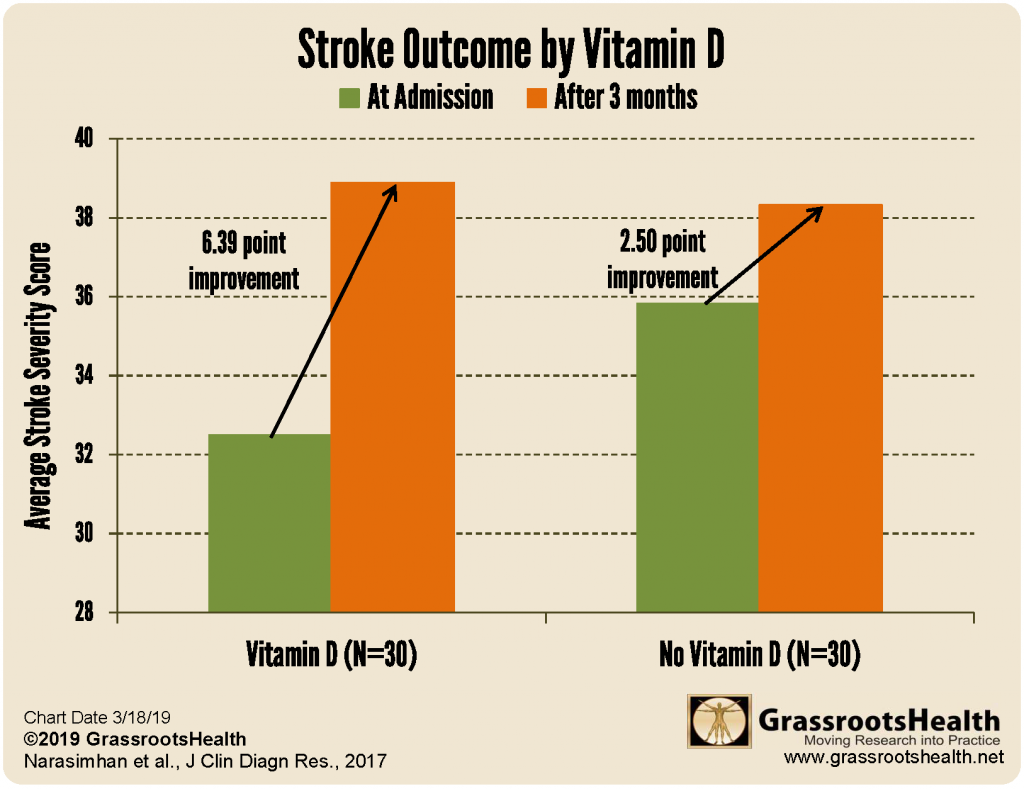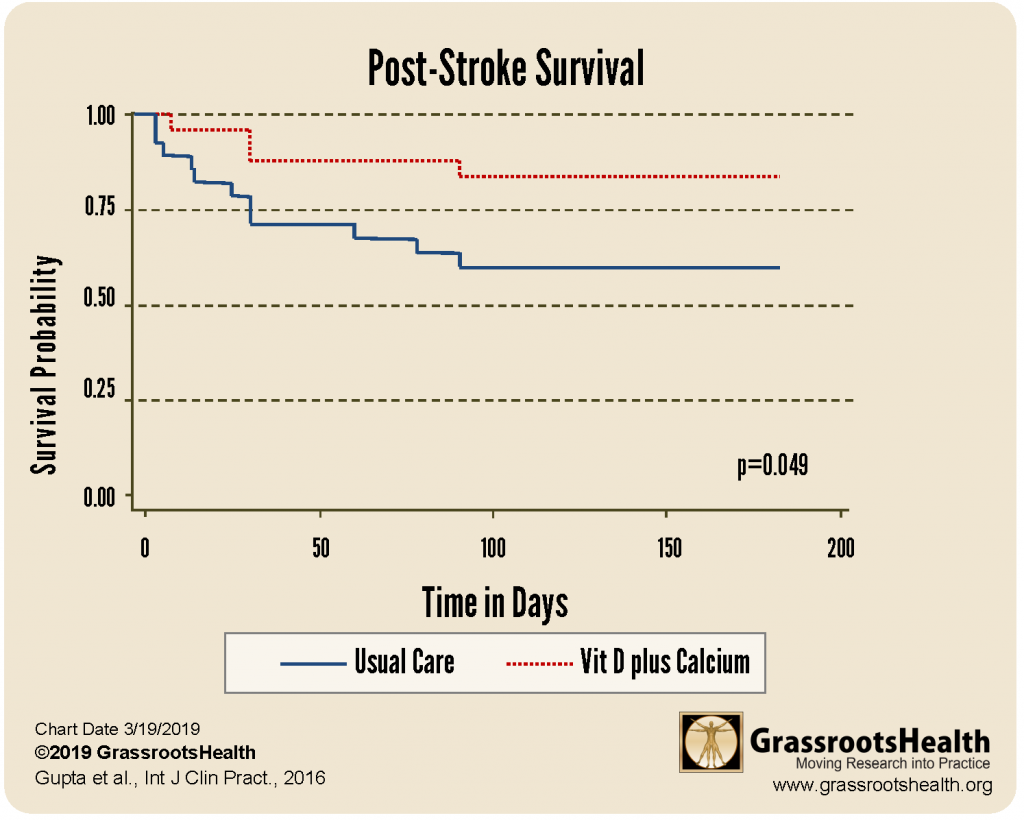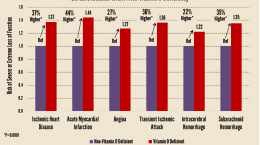Published on March 21, 2019

 March is Brain Injury Awareness Month. Did you know that vitamin D plays an important role in brain health and could benefit those who’ve had a stroke? Vitamin D supports normal neuron function and prevents cellular death after a brain injury. Studies have linked low vitamin D levels with increased stroke severity and a higher risk of post-stroke disability and mortality. In this blog, we will highlight two clinical trials of vitamin D supplementation after stroke, both showing significant benefits for stroke survivors.
March is Brain Injury Awareness Month. Did you know that vitamin D plays an important role in brain health and could benefit those who’ve had a stroke? Vitamin D supports normal neuron function and prevents cellular death after a brain injury. Studies have linked low vitamin D levels with increased stroke severity and a higher risk of post-stroke disability and mortality. In this blog, we will highlight two clinical trials of vitamin D supplementation after stroke, both showing significant benefits for stroke survivors.
Clinical Trial #1: Stroke Severity
In 2017, results from a randomized controlled trial on stroke severity were published in the Journal of Clinical and Diagnostic Research. The objective of this study was to compare stroke severity at admission and after 3 months for 30 patients who received vitamin D (one injection of 600,000 IU) and 30 patients who did not. The research team found that those who received vitamin D had greater improvement in stroke outcome after three months than those who did not (severity score improvement: 6.39 vs. 2.50, P<0.001).
Clinical Trial #2: Post-Stroke Disability and Mortality
Results from a randomized controlled trial on the impact of vitamin D and calcium supplementation on stroke outcome were published in the International Journal of Clinical Practice in 2016. In this study, 53 patients were followed for 6 months; 25 were given vitamin D (one injection of 600,000 IU plus 60,000 IU/month, which averages to 4,932 IU/day) and calcium (1000 mg/day), along with usual care, and 28 received just usual care alone. The research team found that those in the vitamin D and calcium group were approximately twice as likely to achieve a good outcome with regard to the degree of disability or dependence in daily activities compared to the control group (P=0.31). The chart below shows that 84% of those in the vitamin D and calcium group survived at 6 months compared to 60% in the control group (P=0.049).
Magnesium may protect against heart disease, stroke and diabetes
A review of research involving more than 1 million subjects around the world linked magnesium with significantly lower risk of several diseases, including stroke.
![]()
How can I track my vitamin D intake and levels?
To help you track your supplement use and nutrient levels, GrassrootsHealth has created an online tracking system called myData-myAnswers. For each specific supplement, you can track what days you take it, how much, and many other details. This will help you know your true supplemental intake and what patterns of use work for you to reach and maintain optimum nutrient levels. Check it out today!









